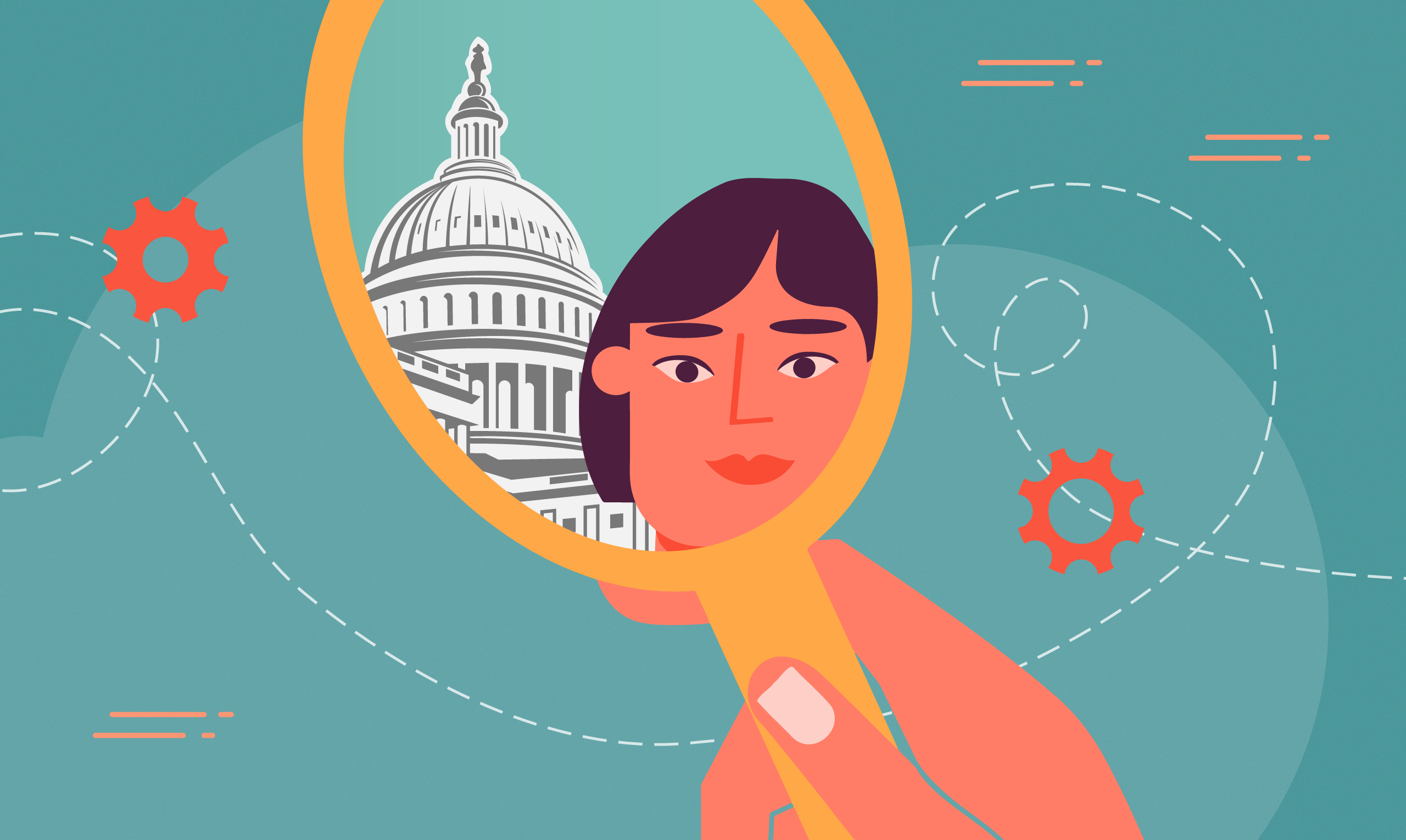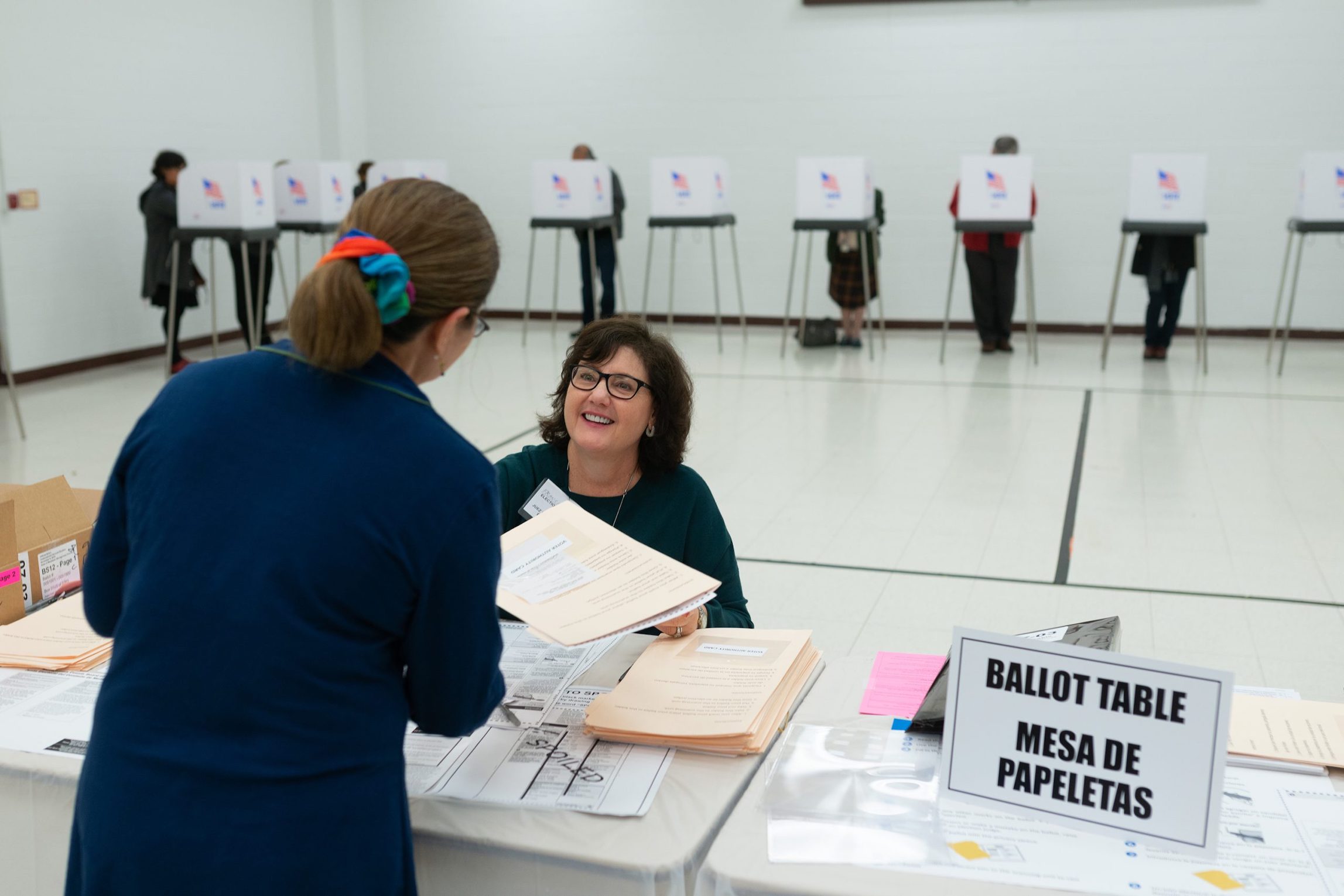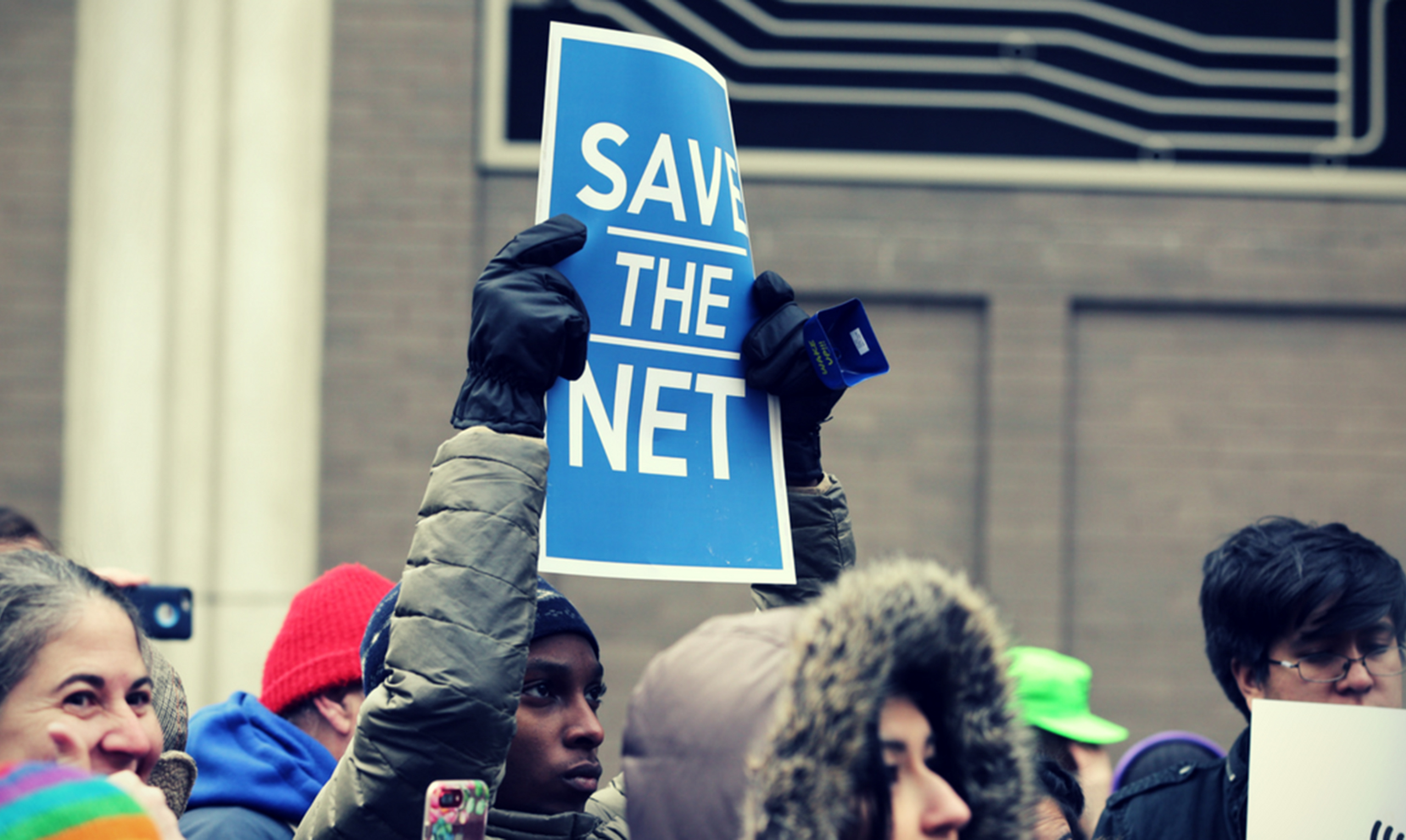Americans have witnessed our democracy lurch from crisis to crisis in recent years. The stakes have become higher in each election, and our country remains stuck in an outdated political system that fails to reflect the will of most Americans. We need to reimagine our election system and governing institutions so we can fulfill the promise of a democracy where all voices carry equal weight and have real representation at all levels of power.
Currently, our institutions — including the Senate, the Supreme Court, and the Electoral College — are set up to privilege the interests of a small minority. At the same time, our “winner-take-all” election system has given outsized power to extremists, leaving voters frustrated by the lack of options on the ballot. These interrelated issues have caused many Americans to question the integrity of our governing institutions.
It’s time to shift power to the people and communities that have been excluded for far too long.
Over the past year, Democracy Fund has advanced its new Representative Institutions strategy, working toward long-term, transformational changes to our institutions and election systems at the local, state, and federal levels. By looking beyond incremental reforms, we are confronting the anti-majoritarian practices embedded in our democracy’s foundation and moving closer to achieving the principle of “one person, one vote.”
To achieve this vision, we have developed a field-building strategy that supports organizations developing critical networks, resources, and infrastructure to advance structural changes to our democracy. We define these changes as improvements that lead to fairer representation and better governing institutions.
Our strategy prioritizes support for organizations that include community perspectives and engage diverse audiences. Far too often, these voices have been under-represented in reform efforts, and important considerations — such as racial and gender justice — have been overlooked in structural change efforts.
One organization we support, Democracy Rising, launched in 2020 with a mission to engage communities in reimagining and transforming our democracy. It helps voters, leaders of color, and election administrators adapt to new election systems such as proportional representation. This work is building a foundation for structural change and the community power required to achieve it.
Important work is also occurring to bring these leaders together with others in civil society. The George Washington University Law School’s Multiracial Democracy Project convenes legal scholars, civil rights leaders, and democracy reformers to examine the harms of our current system and explore new forms of representation that better serve communities of color. These improvements could provide the foundation for a new voting rights consensus — one that more closely reflects an increasingly multiracial and multicultural United States.
“These organizations are laying the groundwork for institutional changes that may not be fully realized in this generation, but must move forward today. Our democracy’s future depends on their efforts to shift the power of the vote back to the majority,” says Sean Raymond, Governance Senior Program Associate at Democracy Fund.
In 2024, Democracy Fund invested nearly $4 million to support organizations and changemakers advancing transformational shifts in our governing and electoral institutions.
“While we must respond to urgent threats facing our democracy, these investments allow us to simultaneously work toward reimagining our institutions and making our political system fairer,” says Winny Chen, Associate Director of Governance at Democracy Fund.
2024 Representative Institutions Grantees
Democracy Fund is proud to announce the 2024 Representative Institutions grantees, who all share a commitment to building a democracy in which all voters have meaningful representation and a stake in governing.
The 2024 Representative Institutions grantees include:
- Boston Review, to support its forum on fusion voting and multi-party democracy.
- Center for American Progress, Democracy & Elections Program, to bring together the progressive community to combat countermajoritarian features in our federal government and encourage adoption of election systems reforms.
- Center for Effective Government at the University of Chicago, to launch a series of research primers and events that make cutting-edge scholarship on structural democracy accessible to those who can use it.
- Charles Hamilton Houston Institute for Race & Justice at Harvard Law School, to convene legal scholars, civil rights leaders, and advocates to study, identify, and recommend electoral systems reforms that increase representation for all voters, particularly historically underrepresented voters of color, as part of its Guinier Project on Strengthening a Diverse Democracy.
- Cornell University, Metric Geometry and Gerrymandering Group Lab, to produce critical research and leading-edge modeling that will inform communities’ selection of election systems reform, while building a deeper evidence base for the field of structural democracy.
- Democracy: A Journal of Ideas, to support its symposium on proportional representation and various implications of the reform, including effects on gerrymandering and ramifications for racial representation.
- Democracy Revival Center, to bring the next generation of social and economic justice leaders, working across issue siloes, into the long-term fight to transform our political and governing institutions.
- Democracy Rising, to provide effective, community-centered support for implementation of structural reforms that enable proportional representation and build stronger support infrastructure for women of color in public service.
- FairVote, to advance better election systems in the United States through research, advocacy, and coalition-building.
- Future of the Senate Project (Brookings Institution), to convene leading experts and practitioners to examine modern-day challenges to the Senate, such as the filibuster, malapportionment, and the need for modernization.
- George Washington University Law School, Multiracial Democracy Project, to convene and build the capacity of prominent civil rights organizations to help shape the structural democracy movement.
- New America, Political Reform Program, to build the research and intellectual architecture for electoral systems reforms, such as fusion voting, ranked choice voting, and proportional representation.
- RepresentWomen, to advance systems-level structural solutions that increase and improve women’s political representation.
- Sightline Institute, Democracy Program, to build momentum toward pro-voter structural reforms in the Cascadia region through research, education, and implementation support.
This portfolio of grantees represents just a portion of the investments needed to transform our political system. Democracy Fund’s work complements the efforts supported by our partner organization Democracy Fund Voice, a nonpartisan 501(c)(4) that empowers organizations and communities to express their political voice through lobbying, advocacy, ballot initiatives, and campaigns at the federal, state, and local levels. Democracy Fund Voice’s grantees marshal the collective power of communities to advocate for changes to achieve a multi-party, proportional representation system and to enact overdue reforms to institutions like the Senate and the Supreme Court.
In the coming months, look out for more updates and news about Democracy Fund Voice’s investments.
Through the combined support of Democracy Fund, Democracy Fund Voice, and many other critical philanthropic partners, a new field is emerging to advance much needed, transformational changes in our democracy. Collaboration with partners and grantees is essential to achieve our vision of an inclusive, multiracial democracy — one where our political system is open, just, resilient, and trustworthy. We invite you to join us and learn more about our work.
Please Note: Democracy Fund does not accept unsolicited business plans, proposals, or personal requests. For more information on our work and grantees, sign up for updates. For general inquiries, contact info@democracyfund.org. To view a complete list of grantees, visit our grants database.






